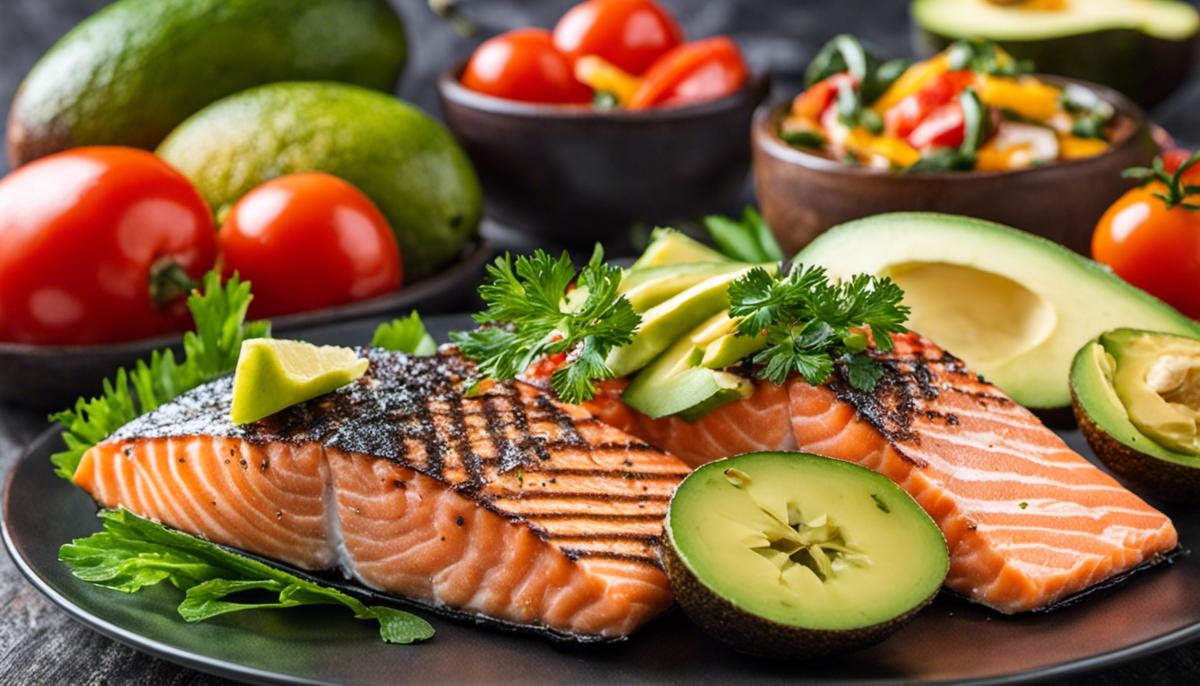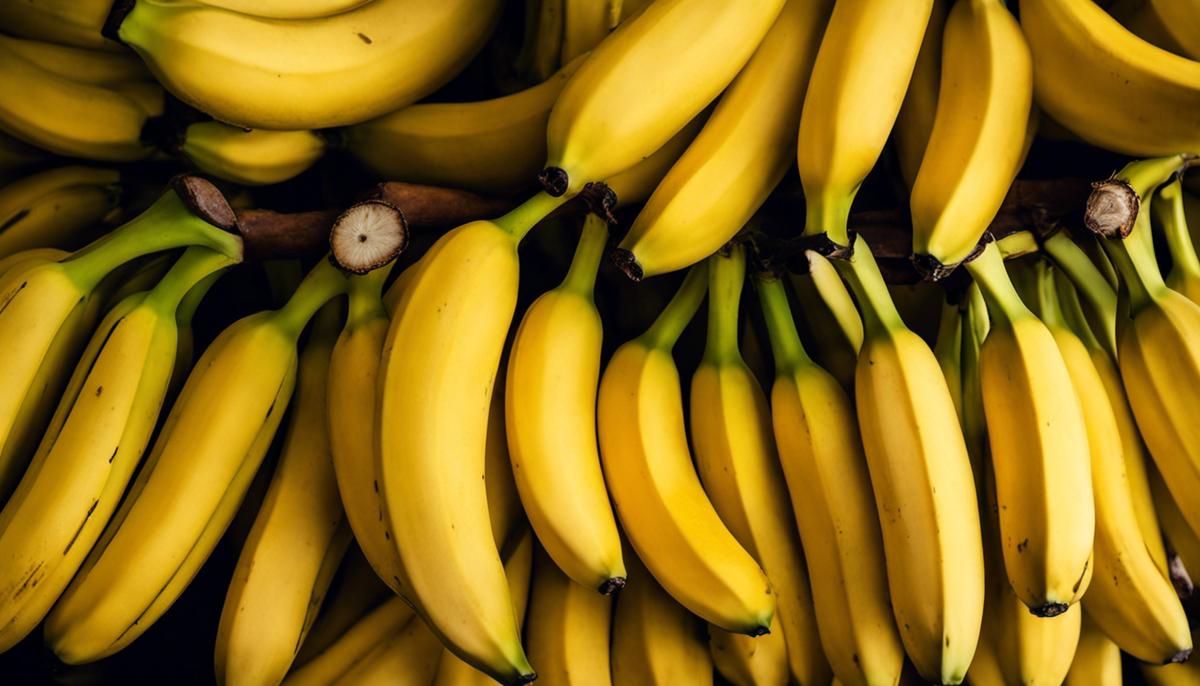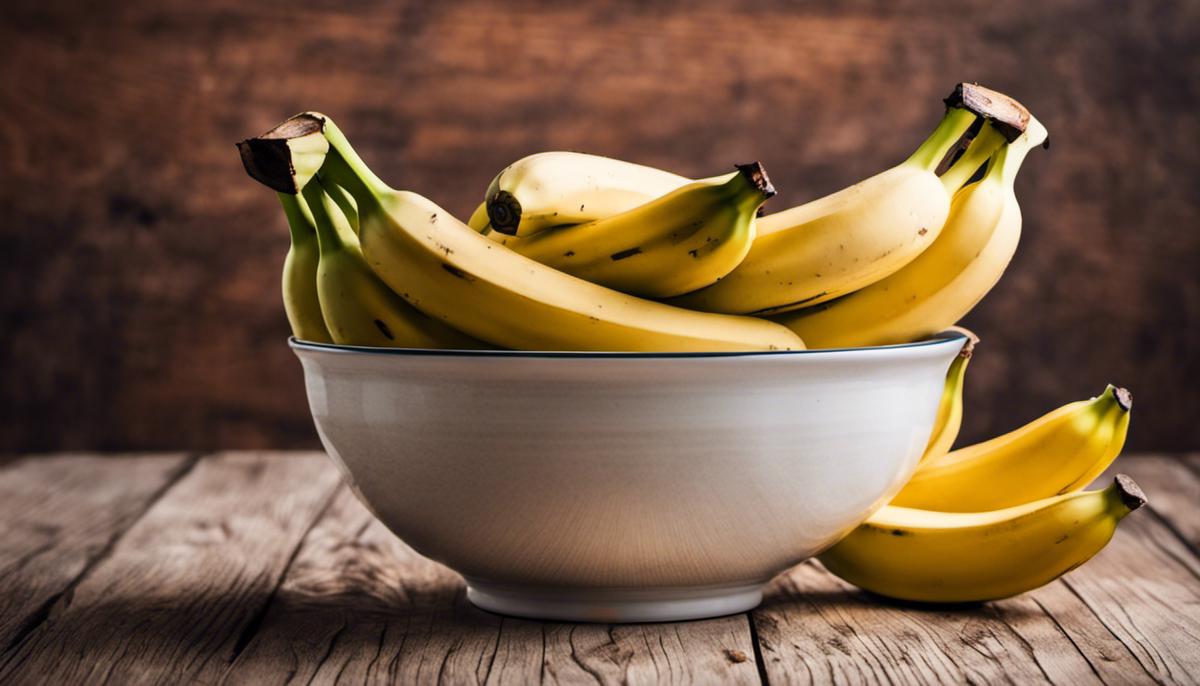When it comes to identifying which foods exactly fall within the constraints of a ketogenic diet, things can often become somewhat confusing. The diet, famed for its high-fat, adequate-protein, and low-carb configuration, is infamous for its strict dietary limitations. While it encourages consumption of fats and restricts carbohydrates to aid in weight loss through the process of ketosis, discerning whether certain foods align with this program can be tricky. To shed some light on this issue, this write-up aims to provide a comprehensive evaluation of the role of bananas in a ketogenic diet. We first delve into the intricacies of the keto diet, then venture into exploring the nutritional aspects of bananas, and finally, assess how these tropical fruits measure up in the stringent keto dietary environment.
Understanding the keto diet
Understanding the Keto Diet and Its Principles
The ketogenic or keto diet is a dietary regimen that predominantly focuses on high-fat, adequate-protein, and minimal carbohydrate intake. This nutritional approach is specifically engineered to force your body to enter a state known as ketosis, in which fats, rather than carbs, become the primary source of energy.
Under standard dietary conditions, your body relies on glucose derived from the consumption of carbohydrates as the primary energy source. However, in a state of ketosis, your body runs out of glucose and shifts to burning fat for energy. This metabolic shift effectively taps into stored fat, making the keto diet an effective tool for weight loss.
The keto diet is carefully detailed and calculated, with about 70-75% of daily caloric intake coming from fat, 20% from proteins, and only about 5-10% from carbohydrates. The drastic reduction of carbohydrates places the body into the metabolic state of ketosis.
However, it should be noted that this dietary approach does come with potential drawbacks. Potential side effects may include nutrient deficiencies and digestive issues due to the low intake of fruits, vegetables, and grains, a lack of appetite fueled by high fat intake, bad breath, and the initial onset of the ‘keto flu’, a collection of symptoms including headache, fatigue, and nausea experienced in the early stages of the diet.
Are Bananas Suitable for a Keto Diet?
In order to determine if bananas are suitable for a ketogenic diet, it’s important to examine their nutritional content. United by a high content of carbohydrates and sugars, and a relative lack of fat and protein, the numbers may not support their inclusion in a typical keto plan. To illustrate this, a banana of medium size contains roughly 27 grams of carbohydrates – a figure that already surpasses the daily carbohydrate limit of a strict keto diet.
With a maximum daily carbohydrate intake of between 20 and 50 grams generally recommended on a keto diet, the introduction of a full-sized banana into your day-to-day meals could potentially obstruct your progress towards achieving and maintaining a state of ketosis, in which the body primarily burns fat.
Despite their rich content of essential nutrients, such as potassium and vitamin C, the high amount of carbohydrates and sugar present in bananas could make their integration into a ketogenic diet challenging. As a result, individuals following a keto diet often prefer low-glycemic index fruits, like berries, avocados or olives, in order to maintain their daily carbohydrate limit and stay in ketosis.
In conclusion, even though bananas offer a variety of health benefits and are a fantastic choice for traditional healthy eating habits, they are generally not considered suitable for strict adherence to a ketogenic diet. However, for those who wish to indulge in occasional banana intake while on a keto diet, it’s advisable to do so sparingly, ideally during periods of physical activity, where the body is more likely to utilize the extra sugar immediately for energy.

Nutritional content of bananas
The Nutritional Profile of Bananas
A medium-sized banana, on average, carries approximately 27 grams of carbohydrates, 1.3 grams of protein, and a mere 0.3 grams of fat. The carbohydrates are largely composed of sugars such as sucrose, fructose and glucose. Providing around 3.1 grams of dietary fiber, bananas are a great contributor to daily fiber needs.
Bananas brim with an assortment of vitamins and minerals, boasting generous amounts of vitamin C and B6. Notably, vitamin C serves as an antioxidant, helping to combat free radical damage, fortify the immune system, and promote the production of collagen. Vitamin B6, on the other hand, has a range of notable benefits, including mood regulation, brain development, and the prevention of heart disease. In addition, a medium-sized banana supplies approximately 422 mg of potassium, a crucial element for maintaining a healthy heart and regulating blood pressure.
Magnesium is another valuable component found in bananas, with benefits like aiding in muscle contraction and relaxation, protein formation, and nerve function. The presence of manganese contributes to various aspects of metabolic health, fortifies bone health and supports in reducing inflammation.
If we consider energy content, a medium-sized banana yields around 105 calories. While a good percentage of a banana’s mass is water and carbohydrates, it harbors relatively little protein and almost negligible fat.
Bananas and Chronic Diseases: Heart Disease and Diabetes
The high potassium content in bananas has been correlated with reduced risk of heart disease by lowering high blood pressure, a key risk factor for heart disease. Some studies also suggest vitamin B6 can reduce homocysteine levels – having too much of this substance in your body might increase your risk of heart disease.
As for the relationship between bananas and diabetes, it’s somewhat complex. On one hand, the fibers in bananas can slow down digestion and absorption of sugar, thus aiding blood sugar control. On the other hand, ripe bananas have a high glycemic index, meaning they can spike blood sugar levels quickly, which might not be suitable for diabetic patients.
Can You Have Bananas on a Keto Diet?
Often being followed with the intention of helping the body achieve a state of ‘ketosis’, a ketogenic or keto diet typically emphasizes on severely limiting the daily intake of carbohydrates. This limit usually lies anywhere between 20 to 50 grams of carbs per day. In contrast, a medium-sized banana alone comprises around 27 grams of carbs, thereby taking up a considerable fraction of a ketogenic dieter’s total daily carb allowance. The reason why bananas pose a problem for ketogenic enthusiasts is primarily due to its sugar content, which stands as the dominant constituent of its carbohydrate profile. This high sugar content could potentially hinder the body from achieving ketosis.
Despite bananas being a treasure trove of essential vitamins and minerals, their high carbohydrate and sugar content unfortunately make them unsuitable for a standard ketogenic diet. However, other nutritionally-dense fruits with lower carbohydrate content, such as berries, avocados, and peaches, can serve as viable alternatives for those diligently adhering to a ketogenic lifestyle.

Bananas on a keto diet: pros and cons
Carbohydrate Restriction: A Central Theme of the Keto Diet
The underlying principle of a ketogenic diet revolves around the idea of minimising the consumption of carbohydrate-rich foods, shifting the energy supply dependency from carbohydrates to fats. Specifically, the ketogenic diet is marked by a high-fat, moderate-protein, and very low-carb dietary structure. In order to achieve ketosis – a metabolic condition where the body primarily burns fat for energy – the common macronutrient distribution followed by individuals on a ketogenic diet is around 70% of total calorie intake from fats, 25% from proteins, and a meagre 5% from carbohydrates.
Carbohydrate and Sugar Content of Bananas
Bananas are known for their high carbohydrate content, which predominantly comes from sugars and starch. A medium-sized banana, for instance, contains about 27 grams of carbohydrates, 14 grams of sugars, and approximately 3 grams of fiber. This high carbohydrate/sugar content places them among the non-keto-friendly fruits, compared to other fruits such as berries that are lower in sugar and carbs, and thus, friendlier to the keto regimen.
Nutritional Benefits of Bananas
Bananas, despite their high sugar and carb content, are nutrient-dense fruits. They are a significant source of Vitamin B6, Vitamin C, fiber and potassium. They also contain antioxidants such as dopamine and several types of carotenoids.
Versatility of Bananas in Food Preparation
Bananas are a versatile food that can be incorporated into many dishes. They can be eaten raw, added to smoothies, baked goods, yogurt, cereal, and more. However, due to their high carbohydrate and sugar content, they would need to be significantly limited or eliminated from recipes while following a ketogenic diet.
The Potential of Bananas Interfering with Ketosis
Ketosis is a metabolic state where the body uses fat, rather than carbohydrates, as its primary energy source. High intake of carbohydrates can interfere with this process, thus inhibiting the state of ketosis. Given the high carbohydrate content in bananas, consuming them could potentially disrupt ketosis, especially if consumed in large amounts or often.
Evaluating Bananas’ Role in a Keto Diet
Based on the information and scientific data available, bananas are not typically considered keto-friendly due to their high carbohydrate and sugar content. Even though they are rich in several important nutrients, their carbohydrate content is too high to fit into a typical ketogenic diet. However, individual carbohydrate goals can vary based on personal tolerance and activity levels, and a small portion of banana might fit into a person’s daily carbohydrate limit. It is recommended to consult a healthcare professional or dietitian before making significant changes to your diet.

Given the depth of our exploration into the ketogenic diet and its unique high-fat, low-carb predilections, it’s evident that while bananas boast an impressive nutritional profile, they do carry a significant load of carbohydrates and sugars. It is these very components that put them in a precarious position in a ketogenic diet, potentially interfering with the coveted state of ketosis. Nevertheless, their wealth of vitamins, minerals, and overall taste and versatility mean they could still hold a place in moderated amounts, depending on individual carbohydrate limits and tolerance. Although the keto diet might impose some restrictions, making informed food choices within its boundaries can help optimize diet quality and overall health outcomes.
